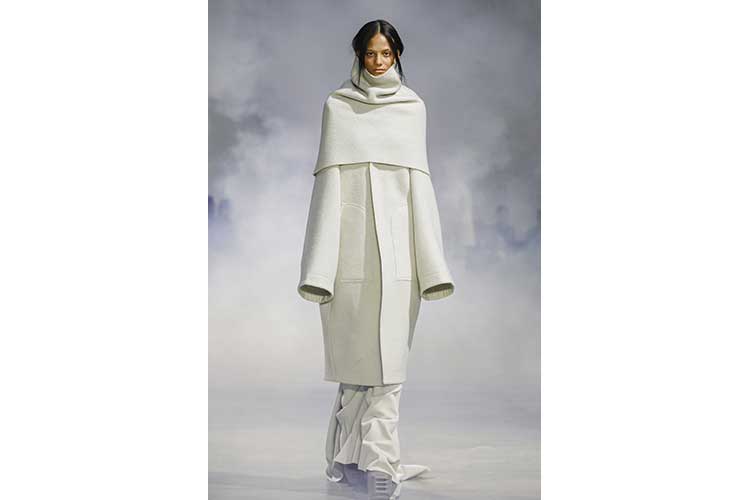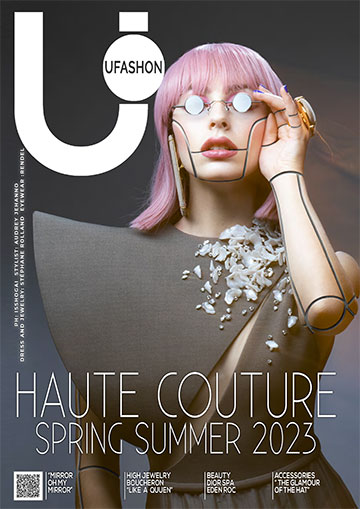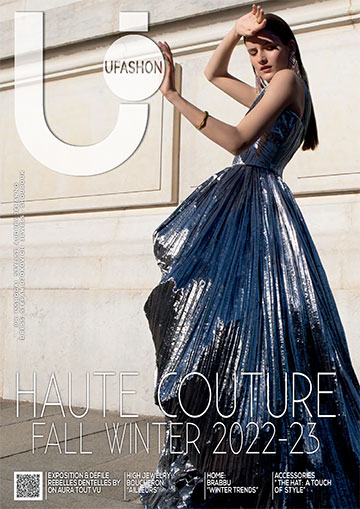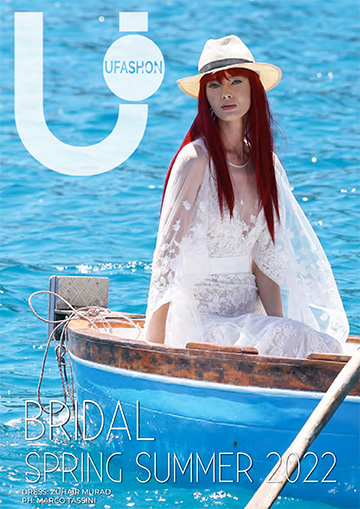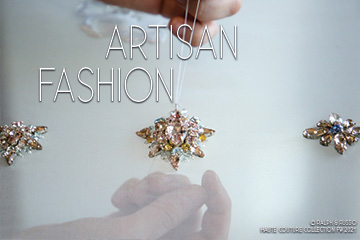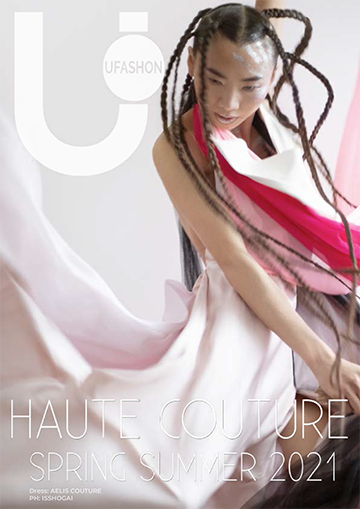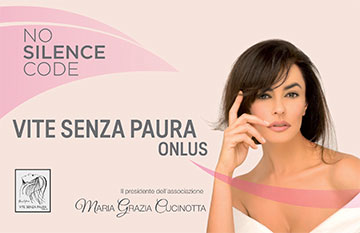Fashion has always been about communication, and signaling value systems to others. Value systems regarding physical beauty and status but also about moral beauty and beautiful behavior. In times of menace and strife, the way we present ourselves can express what we endorse and aspire to an empathetic and gracious way of moving through the world and treating others.
He believes aesop has always expressed these values through aesthetic, hygienic, and moral beauty. It is a brand that considers its space in the world and uses that space as considerately as possible. They have collaborated on a fragrance that is diffused through the portable fog machines the models carry like brutalist thuribles.
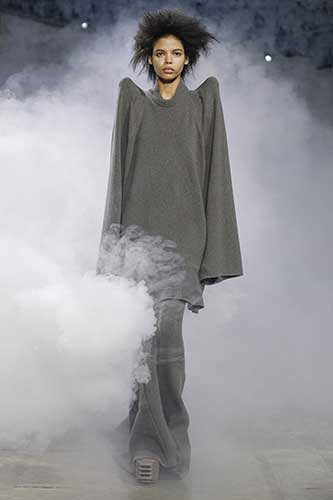 |
Gentle mantles, tunics, and cowls come in muted tones of alpaca felt recalling the felts always used by joseph beuys, whom Rick Owens, Artistic Director has referenced ad nauseam, and dragging robes are draped in gobs and fistfuls of dust colored sequins.
Duvet jackets in recycled nylon, python, or pirarucu are knotted around the upper torso over languid bias gowns in velvet or washed denim or knit recycled cashmere.
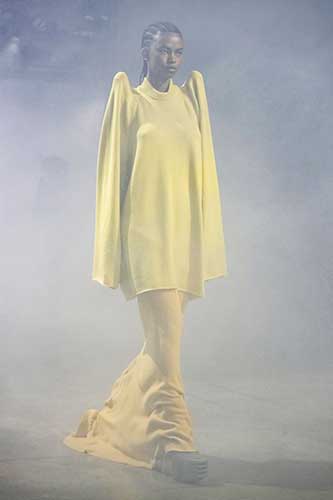 |
Candy colored confections in collaged shearlings are cut as cropped, voluminous blousons or flat, long and wide soft shields.
These shearling colors reinterpret spring’s platform spartan wader boots as well.
High and sharp shoulders on t-shirts, sweaters, and jkts elongate the arm and frame the face with an alien slouch.
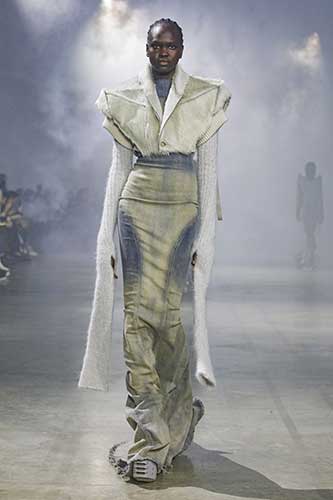 |
Theda Bara parkas with extravagant goat fur trim come in black leather, orange canvas or reflex— an industrially familiar retroflective fabric woven from yarn made from glass.
100% of their cotton jerseys are organic gots certified cotton.
90% of their cotton wovens are organic certified cotton.
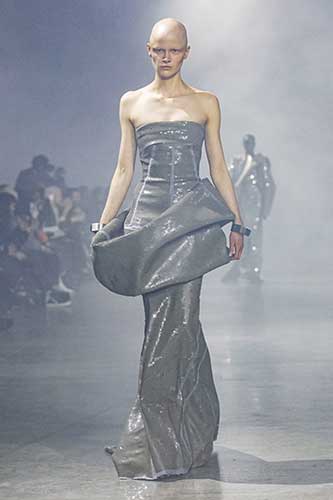 |
Their shearling collages are by-products of the food industry and are from lwg certified family-owned tanneries in italy.
Their leathers and snake skins are part of a traceability program that continues to regularly audit each step of the supply chain in order to guarantee it is secure and ethical.
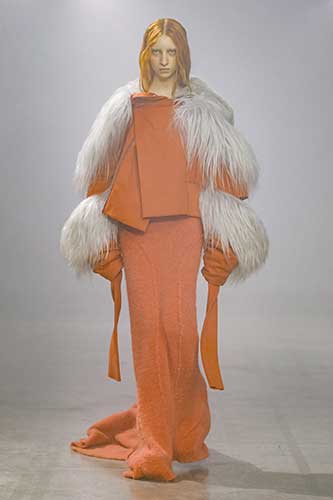 |
Pirarucu is sourced directly from a local supplier in brazil with a tannery that collaborates with the local population that uses the fish for food and then the skins provide them with an extra income.

